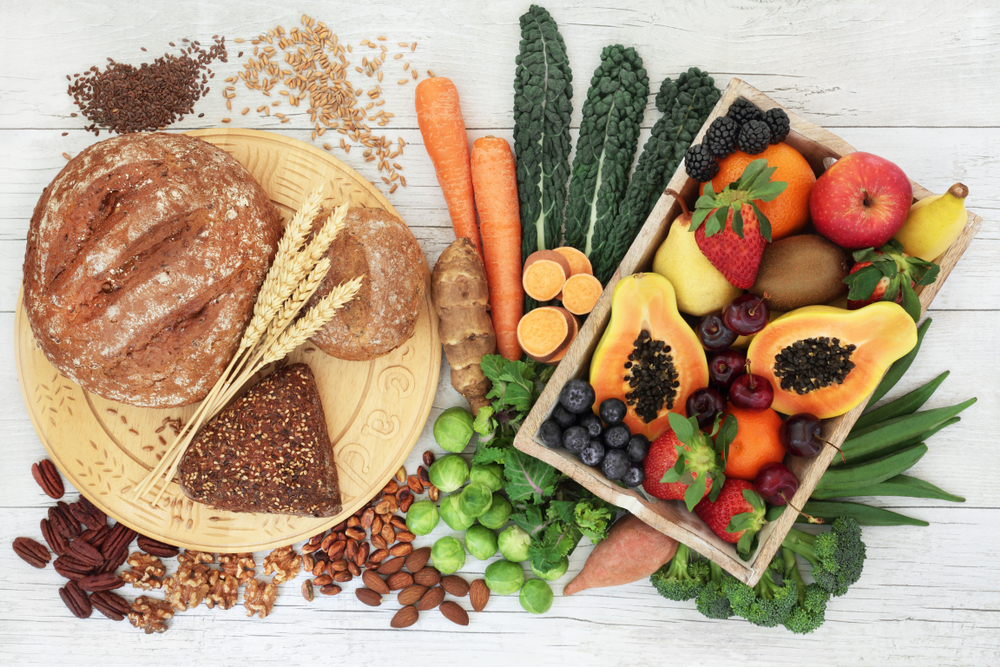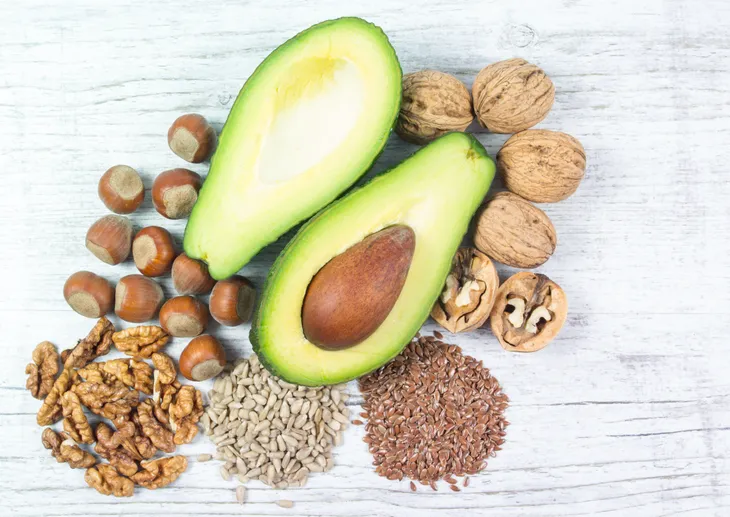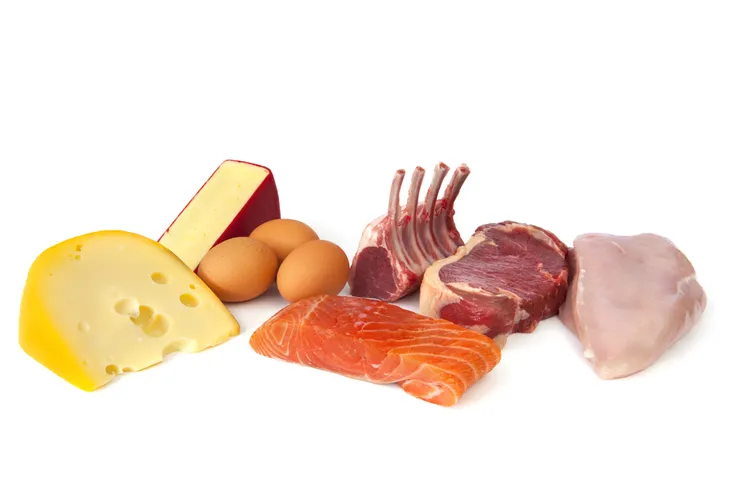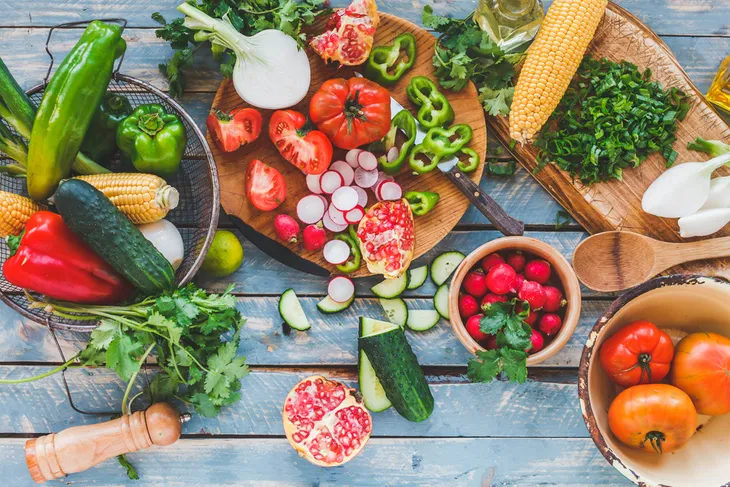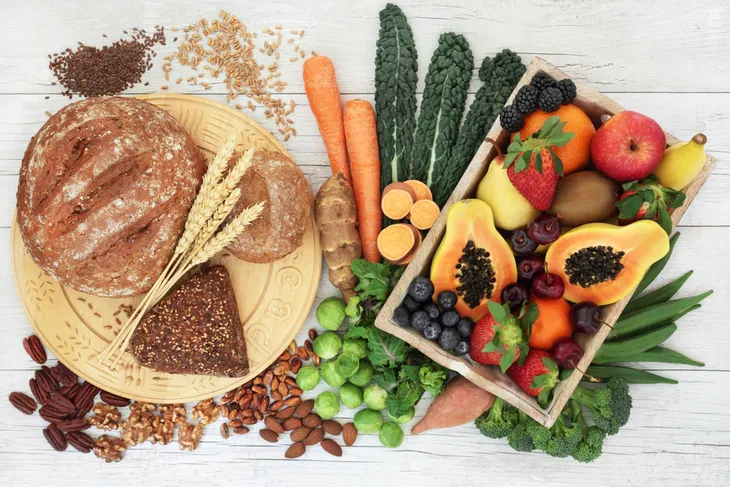The biggest issue plaguing people with chronic obstructive pulmonary disease (COPD) is difficulty breathing, which, among other things, can lead to weight loss, muscle and bone breakdown, and vitamin deficiencies affecting all parts and functions of the body. While there is no one diet or group of foods that are perfectly suited for people with COPD, there are foods that can work to alleviate, avoid, and, in some cases, reverse issues caused by difficulty breathing. What makes a specific food better suited for someone with COPD comes down to how much carbon dioxide it produces in the body when consumed. Because your lungs are tasked with exhaling carbon dioxide, the more carbs you eat, the more stress is put on your lungs, and therefore the worse your COPD becomes. Therefore, the less carbon dioxide is produced, the better people with COPD can manage their health.
Carbohydrates, especially fast-acting carbohydrates, produce the most carbon dioxide in the body. Fats and proteins produce the least. With this in mind, as someone with COPD, you want to prioritize foods that fit within the guidelines.
How to Eat for People with COPD
Healthy Fats
Studies show that following a high fat, low-carb ketogenic diet produces less carbon dioxide than following a low-fat, higher-carb diet. However, when following a high-fat diet, it’s important to prioritize the right kinds of fats. Specifically, prioritize healthy omega-3 fatty acids and poly- and monounsaturated fats over certain saturated (animal) fats or hydrogenated fats found in skin from meat, vegetable oils, shortening, fried foods, cookies, crackers, and pastries.
Healthy fats include:
- Nuts (nut butter also works if chewing is too tiring)
- Seeds
- Eggs
- Olive oil
- Avocados
- Fatty cold water fish like salmon
Adding plenty of these fats to your diet also makes hitting your caloric requirement easier, which can be difficult for people with COPD due to a decreased appetite and breathing problems. Whereas carbohydrates only provide 4-calories per gram, fat provides 9-calories.
Another high-calorie food worth adding to your diet in moderation is milk (at least 2-percent). In addition to adding fat and helping you to hit your daily caloric requirement, milk also offers protein, calcium, and vitamin D.
If you find yourself having trouble meeting your caloric requirement, try spreading out your meals more sporadically throughout the day. Instead of three big meals, try five small-to-medium meals instead. This way, in addition to potentially packing in more calories, you reduce the risk of your stomach pushing up against your diaphragm making it harder for you to breathe. (To learn more, read up on some more of our Healthy Eating Tips for COPD Patients).
Lean Protein
A decrease in appetite can also cause many people with COPD to have a protein deficiency and not even know it. A lack of protein can lead to muscle wasting as your body begins to eat its own protein stores. This is exacerbated by the fact that COPD also often causes decreased levels of activity due to fatigue.
To counteract this, it’s important to include plenty of high-quality protein sources into your diet, which include:
- Chicken (no skin)
- Turkey
- Cornish hen
- Fish
- Cheese (limited)
- Cottage cheese (limited)
- Buffalo
- Ostrich
- Rabbit
- Venison
- Dove
- Duck
- Goose
- Pheasant (no skin)
You can also supplement with protein powder to be safe. If you’re unsure of how much protein you should be taking in over the course of a day, you can use this calculator from the United States Department of Agriculture (USDA).
Fruits and Vegetables
COPD or not, plenty of vitamin- and mineral-rich fruits and vegetables should be a staple in everyone’s diet. However, a nutritious fruit and vegetable profile is especially important for people with COPD.
For example, vitamin A, in particular, which is found in spinach, kale, and carrots, has been linked to improved COPD symptoms. There is also some evidence that a deficiency in vitamin D may contribute to COPD and worsen COPD symptoms. While vitamin D is produced naturally by the body, a certain amount of sun exposure is required to produce enough of it. For COPD patients with limited energy, they may not be able to stay outside long enough for this requirement to be met. This is why eating foods that are supplemented with vitamin D is essential (milk, for example). Certain fatty fish like salmon, mackerel, and tuna can also be sources of vitamin D.
Finally, due to common steroid usage, people with COPD tend to also have an increased need for calcium. Calcium is found in eating leafy greens like broccoli and cabbage, as well as dairy products like milk and cheese.
There is also the option to supplement with vitamins for any of the above, but it’s important to consult your doctor before beginning to take any new vitamins on a daily basis.
High-Fiber Carbohydrates
As someone with COPD, carbohydrates don’t have to be completely eliminated from your diet. The key is to prioritize high-fiber carb sources like whole grains (quinoa, barley, millet, etc.), tubers (sweet potato), beans, peas, and legumes.
In addition to being very high in fiber, beans, peas, and legumes also contain zinc. Research has suggested that consistently hitting your daily required intake of zinc (11-mg for men and 8-mg for women) can help to improve COPD symptoms. For reference, a half-cup of chickpeas contains 1.3-mg.
Water
The persistent breathing problems that are symptomatic of COPD can cause you to become more dehydrated than usual. Aside from obviously keeping you alive, being hydrated also helps to loosen phlegm making mucus easier to cough up, which helps to better protect you from infection. As a general rule, aim for 6 to 8 glasses (8 fluid ounces each) daily.
